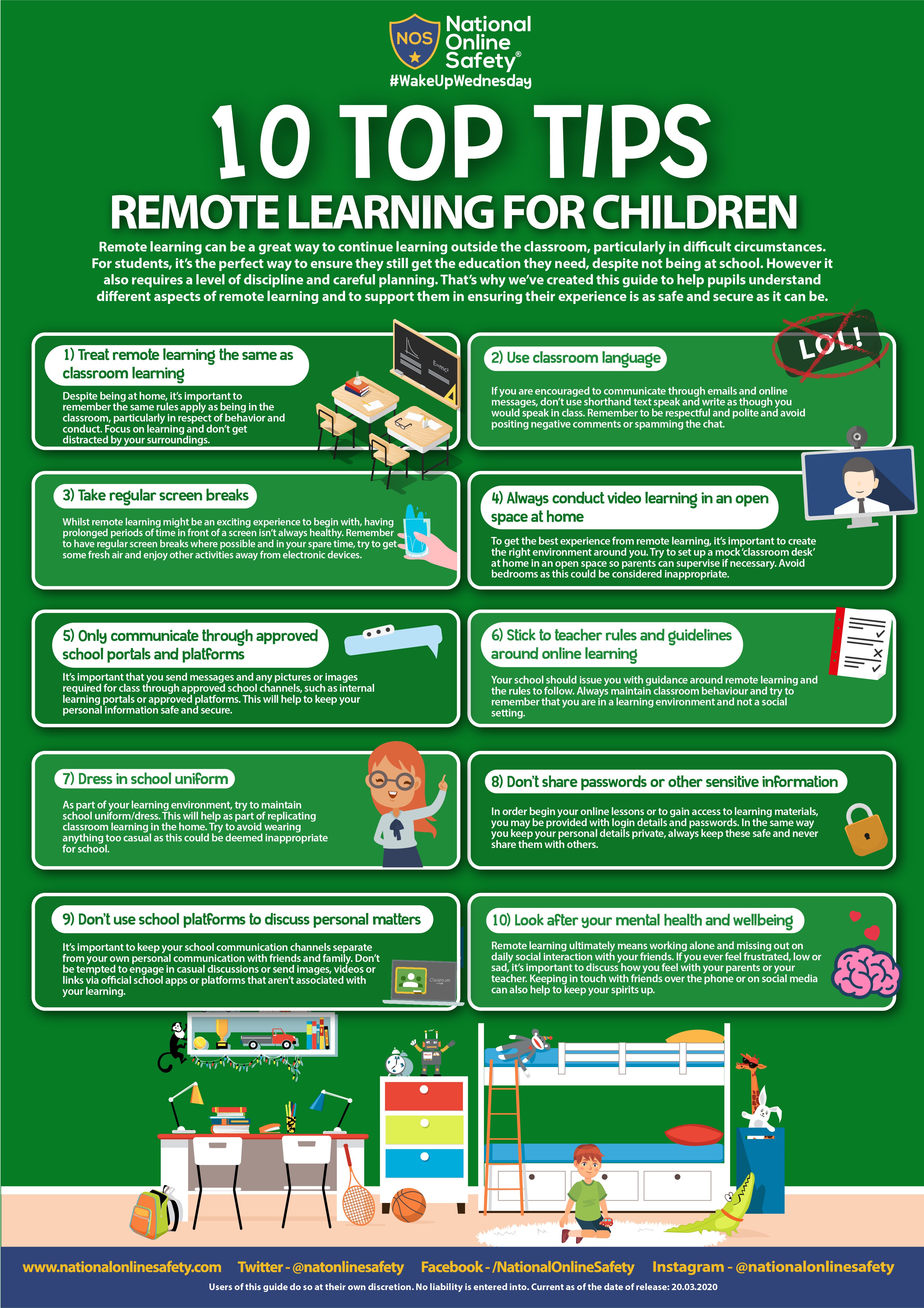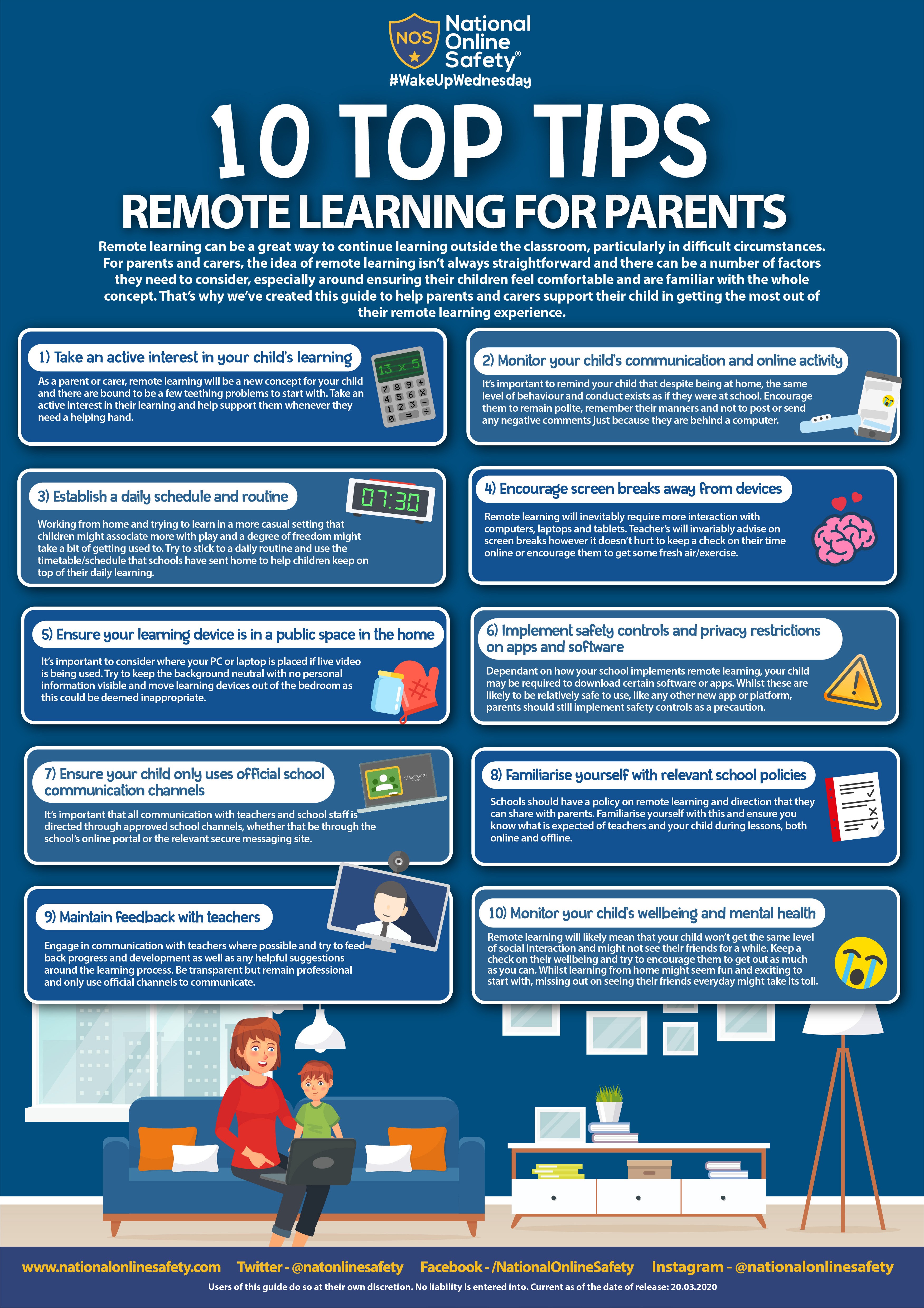Here are lots of useful resources and tools that you as a parent or carer can use to help ensure your child is safe and happy online.
Online safety activities you can do from home
As your children spend more time at home and are going to be online more than ever, we’ve pulled together a list of easy-to-use resources. They are broken up into ages and include quick activities, films and plenty more fun ways to engage your children. From identifying fake news to online bullying – there is plenty for you to use and adapt for your family.
We will be adding more content for each age group as time goes on, and if there are any particular topics or ways of working you would like to see more of don't hesitate to message or tweet us @childnet.
Getting advice and guidance if something goes wrong
As young people spend more time online there is also an increase in the chances they will see something online which isn't intended for them. Whether this is fake news and impersonation, or mean comments, there are lots of places you can go for help and advice on how to report this behaviour. Together as a family you can also help prepare your children and build their critical thinking skills.
Making a report
reportharmfulcontent.com is a website designed to help you report anything which you believe shouldn't be online, with guidance about how to report different types of content as well as help with the next steps you can take if your report isn't actioned by the site or service you have made it on.
Speaking to someone
For young people - depending on the age of your child there are a range of places they can go for help, for younger children they can call Childline for help and support, and for older children The Mix offer free and practical advice.
For parents and carers - The O2 and NSPCC helpline can help you with any questions or concerns you may have about keeping your child safe online, they can provide you with advice and help to troubleshoot any problems your family may be facing.
For educators or professionals - The Professionals Online Safety Helpline will continue to operate Monday to Friday 10:00am – 4:00pm. This helpline can assist with any online safety issues or concerns any professional working with children and young people may have. For help and support, please email helpline@saferinternet.org.uk
Making the most of the internet as a family
Creating a family agreement
A family agreement is a great way to start a conversation with your whole family about how you all use the internet. As you have everyone at home, it’s a fantastic way to set boundaries and discuss how you are all going to use technology during this time. Where is tech going to be used in your home? How are you going to share it and what times of the day can different family members have access? It's also a great way to discuss how to behave online and talk about what happens if something upsets or worries your child.
Having a conversation
As a parent or carer, the best tool to support your child in leading a happy and safe life online is open conversation. Our Parents' Guide gives advice on how to begin these discussions, how to work together as a family to support your child online, and how to handle difficult conversations or situations.
Topic specific advice for parents and carers
From livestreaming and parental controls, to grooming, our website has advice for parents and carers on a range of topics.
- Internet matters - for support for parents and carers to keep their children safe online
- London Grid for Learning - for support for parents and carers to keep their children safe online
- Net-aware - for support for parents and careers from the NSPCC
- Parent info - for support for parents and carers to keep their children safe online
- Thinkuknow - for advice from the National Crime Agency to stay safe online
- UK Safer Internet Centre - advice for parents and carers



